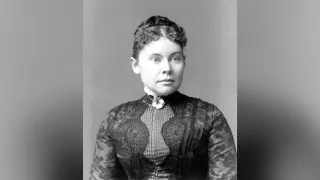November 30, 2017
Haruki Murakami's Sleep
Brooke Pierce READ TIME: 3 MIN.
Have you ever experienced insomnia? Been frustrated by that horrible feeling of being terribly tired, anxiously watching the clock while unable to make yourself settle into a dreamy unconsciousness? Well, that's not what the protagonist of "Haruki Murakami's Sleep," playing a limited run at the Brooklyn Academy of Music (BAM), is experiencing -- despite the fact that she hasn't slept in 17 days.
No, the nameless woman, a stay-at-home mom who guides us through her experience of prolonged sleeplessness tells us that what she is going through is quite different. She doesn't feel tired at all. In fact, she feels especially alert, her senses sharpened. But she doesn't know how to explain her "condition" -- she hasn't even told her husband.
In an attempt to understand what is happening to her, the woman remembers back to before the sleepless streak began. She re-lives a normal day that includes her husband getting ready for work, her son hugging her goodbye before heading to school, starting her car, running errands, and listening to her husband chit-chatting during lunch and dinner. That night she has a powerful, eerie dream, and from then on sleep is elusive.
Initially, she is enjoying her new nighttime life. It's an extra eight hours that are all hers, to rediscover the joys of drinking and chocolate and, most notably, the reading of Tolstoy's "Anna Karenina." Bedecked in sumptuous red, Anna herself begins to make her way through the woman's world, which one is tempted to describe as a dreamscape, except she is supposedly awake. In any case, her mind is alive with scenes from the novel, and she finds something fulfilling and meaningful in it that appears to be lacking in her dull daily existence.
Directed and devised by Rachel Dickstein and the multi-disciplinary theater company Ripe Time, "Sleep" is adapted by Naomi Iizuka from Haruki Murakami's short story. While there is text, primarily narration from the woman, the piece is more of a sensory experience. Through a lengthy development process, Dickstein worked with the ensemble to create choreography, also collaborating with costume, set, lighting, projection and sound designers to theatricalize the atmosphere and themes inspired by the story.
There is also an original score by the NewBorn Trio, who accompanies the 70-minute performance, playing an unusual array of instruments and noise-makers, including metal objects, glass percussion, and a Japanese flute. The soundscape, movement, design, and text draw us into the woman's surreal vision. Though her real life seems almost painfully ordinary -- so much so that she has emotionally disconnected from it -- there is something mysterious, even sinister in the way she perceives it.
The production features many arresting visuals and a haunting mood that still allows for bursts of humor. The performers (Akiko Aizawa, Brad Culver, Takemi Kitamura, Paula McGonagle, Jiehae Park, and Saori Tsukada) are marvelous. It's a pleasure watching this ensemble work together so beautifully, from their intricate, stylized movements to their voice intonations.
While "Sleep" is ultimately no easier to decipher than my average dream, it is more interesting, more memorable, and far better designed. I fully expect to have images from it dancing in my head as I doze off tonight.
"Haruki Murakami's Sleep" runs through December 2 at the BAM Fisher, 321 Ashland Place, in Brooklyn. For information or tickets, call 718-636-4100 or visit www.bam.org






